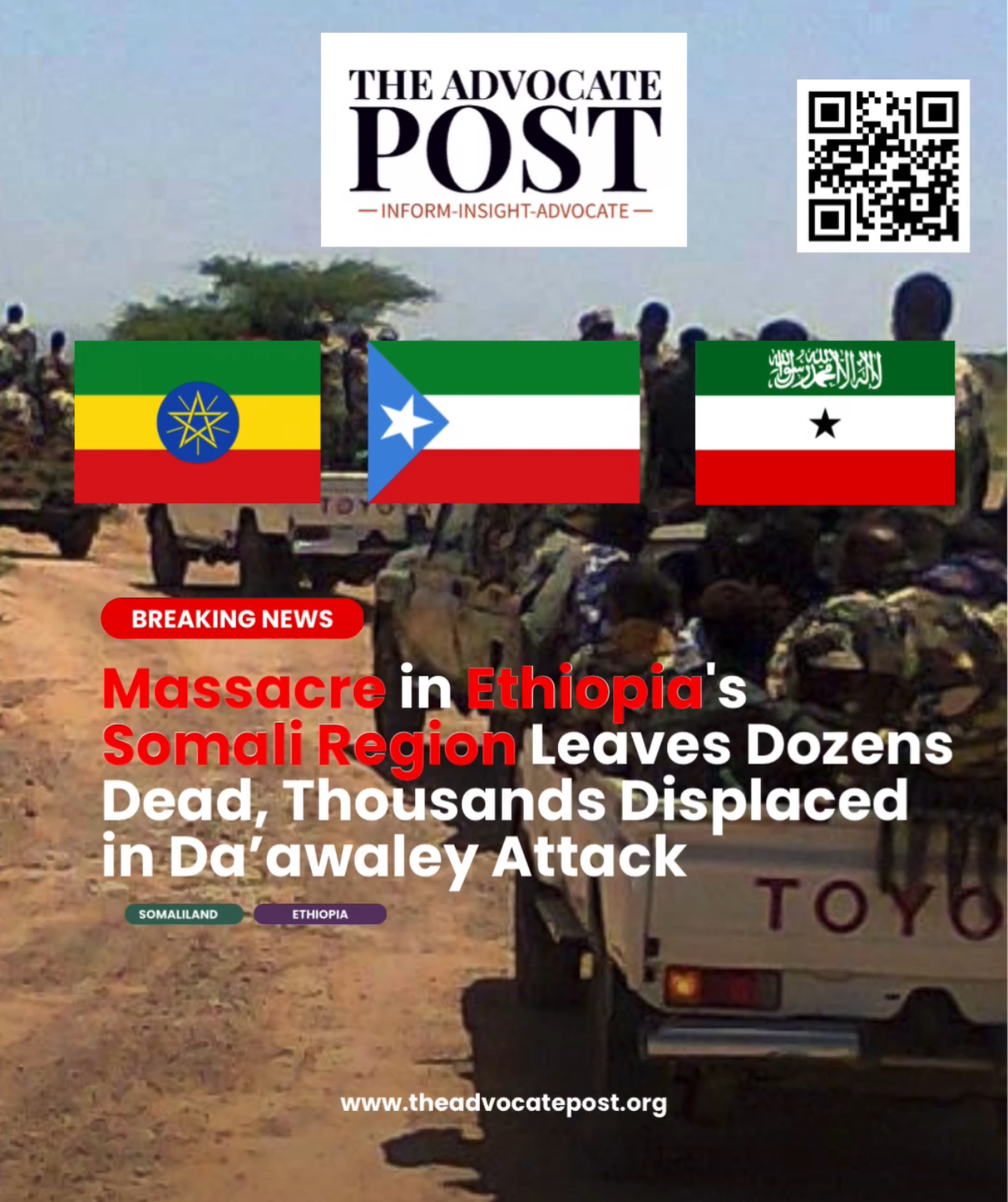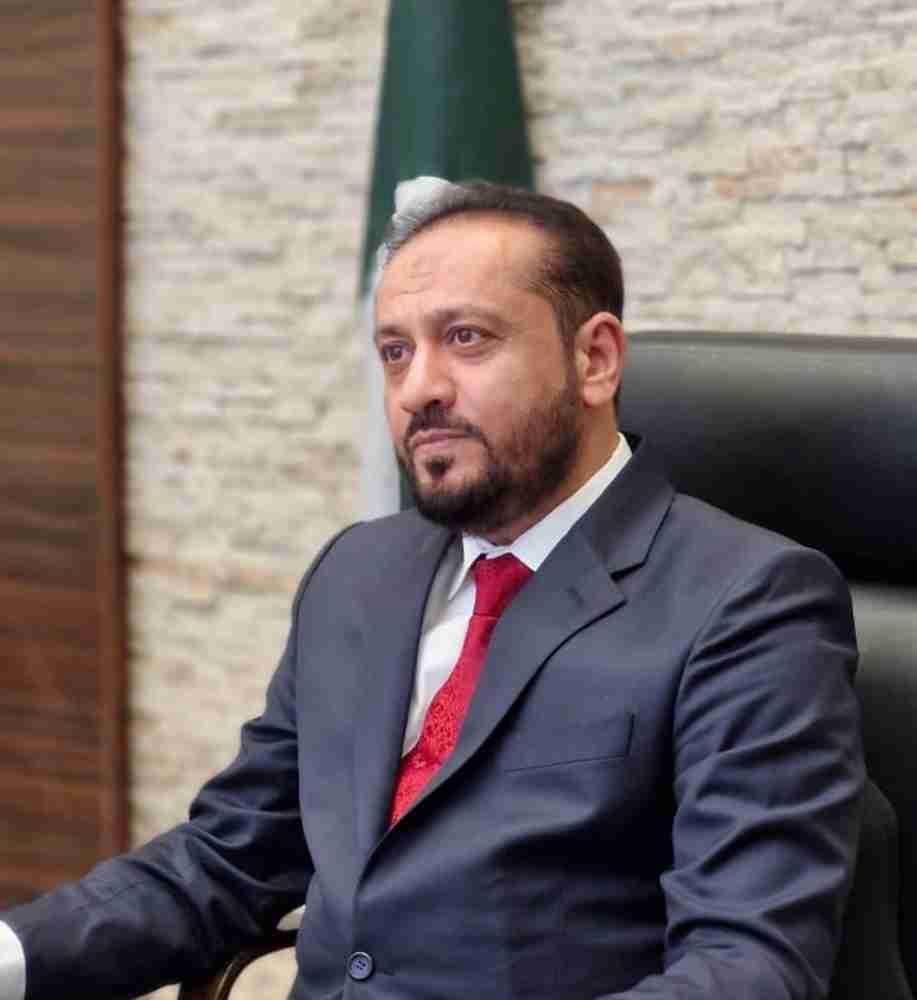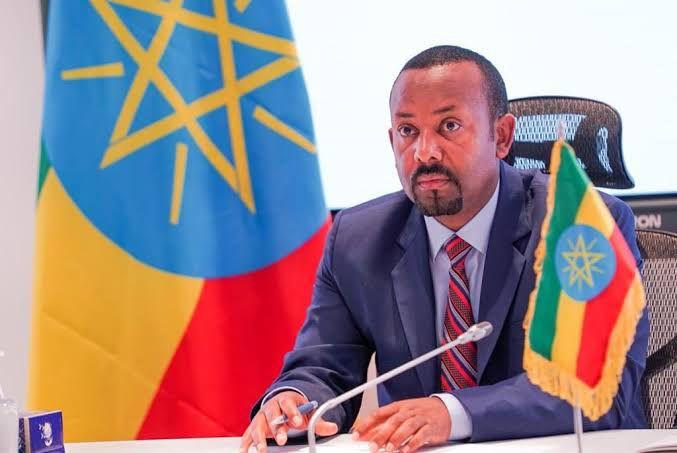The Advocate Post: In the early hours yesterday, the Liyuu Police, a paramilitary force operating under the Somali regional administration in Ethiopia, supported by local militias from Yo’ale, launched a large-scale massacre in the Da’awaley area of Xarshin district. The attack has left dozens of civilians dead and displaced thousands of pastoralists, plunging the Arab Isaxaaq community into crisis.
Eyewitnesses report widespread destruction as homes and livelihoods were devastated in the assault. The attack, reportedly led by the regional police commander Abdi Siad, known as Gafaydhe, targeted the Da’awaley area from three different directions. Shockingly, local sources reveal that the Liyuu Police launched the attack despite ongoing peace efforts by traditional leaders from the Isxaaq community. These leaders had been working towards reconciliation and peace-building in the region.
Several traditional leaders were killed during the assault, while others sustained severe injuries or were forcibly abducted. Disturbing images circulating on social media, particularly from accounts associated with the Ethiopian Somali Administration, show vehicles belonging to the traditional leaders being seized by the forces. The motives behind these actions remain unclear, but it appears that these leaders were targeted solely for their efforts to restore peace in the area.
Da’awaley, a predominantly Arab Isaxaaq settlement, had long been a peaceful pastoralist community in the Somali region. However, escalating tensions between regional authorities and local communities have led to the recent eruption of violence. Reports indicate that the coordinated attack on Da’awaley was orchestrated by the leadership of the Somali Regional State, raising serious concerns about governance and the role of regional forces in perpetuating violence.
While the Ethiopian Somali administration justifies the operation as an effort to restore order and combat “terrorism” in Da’awaley, many critics argue that such rhetoric only deepens existing divisions and fosters further conflict. Human rights groups have warned that labeling the Isxaaq community as “terrorists” is a dangerous move that will exacerbate tensions in an already volatile region.
In a disturbing video that has surfaced online, Ethiopian Somali Regional Special Forces, alongside civilians from the Ogaden clan, are seen brazenly looting Isaaq villages, revealing a shocking descent into lawlessness under the watch of the regional government.
The involvement of regional president Mustafe Mohammed Omer has come under intense scrutiny, with accusations that he played a central role in orchestrating the violence. Critics claim that Omer appointed his cousin, Abdi Siad, to head the Liyuu Police despite his controversial past, including his role in previous atrocities under the leadership of former Somali Regional President Abdi Illey. Abdi Siad’s “iron-fisted” rule has been accused of suppressing dissent and opposition, and his leadership of the Liyuu Police is seen by many as a tool for furthering the regional administration’s political agenda through violence and intimidation.
Human rights activists are calling for an immediate intervention by the Ethiopian federal government to hold both Abdi Siad and President Mustafe accountable for their roles in the massacre. The assault on the Isxaaq community has sparked alarm over the tribal motivations behind the violence and the potential for further unrest in the region.
The attack has led to a severe humanitarian crisis, with thousands of displaced individuals left without shelter, food, or access to basic necessities. The coordinated nature of the assault has decimated the livelihoods of families who depend on livestock for survival, leaving many in dire need of humanitarian assistance.
Videos from the scene also reveal the destruction of Isaaq villages, with reports of entire communities being burned to the ground and hundreds of lives lost in the violence. International human rights organizations and local activists are urgently calling for aid to assist the affected population and prevent further loss of life.
As news of the massacre spreads, calls for justice are growing louder. Many are urging the Ethiopian federal government to conduct a thorough and impartial investigation into the actions of the Liyuu Police and the regional administration. There is also mounting pressure for international observers and human rights groups to monitor the situation closely and advocate for accountability.
The massacre in Da’awaley underscores the fragility of peace in Ethiopia’s Somali region, where deep-rooted tensions between different communities and regional authorities have led to violent conflict. The international community’s engagement and support will be crucial in fostering accountability, justice, and long-term stability in the region.






This Post Has One Comment
Human rights and people rights must be protected at all cost